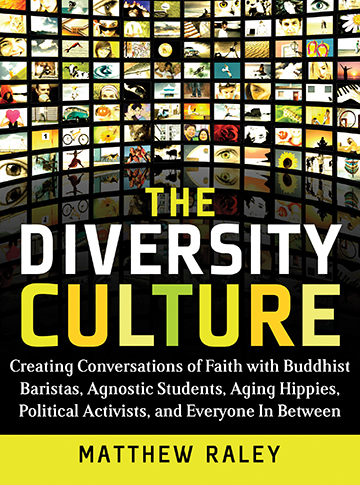A couple of years ago, browsing through a used bookstore in St. Helena, CA, I discovered a paperback edition of Alexis de Tocqueville's classic, Democracy In America. The volume was flawless, the spine and the covers uncreased, the pages without a mark or fold. I bought it, only to discover that the book had a story to tell beyond Tocqueville's.
St. Helena is a fascinating artifact in itself, one that dramatizes the problem I write about in my forthcoming book, The Diversity Culture.
The town's Main Street might have been the set for Bedford Falls, and you half expect to bump into George Bailey outside the Building and Loan. It was an all-American, white, Christian town, its economy agricultural and its ways rural and bourgeois.
St. Helena is anything but that now.
While its economy remains heavily agricultural, one has to specify that the crop is grapes and the product wine. The storefronts that once held dry goods, hardware, and clothing at middle-class prices now display oils and soaps, Cartier fountain pens, designer jeans, and prints of John Lennon drawings. The old movie theater that once would have shown It's a Wonderful Life now shows indie flicks.
Ethnically, there are Chinese, Koreans, Japanese, Latinos, Blacks, and a healthy number of people whose background can't be determined at a glance. Sexually, there are gay and lesbian couples, and the number of married tourists spending the weekend is declining.
The spirituality of the town is Eastern. There are evidences of Buddhism and Hinduism, often in the forms of those systems' gods themselves. And the politics of St. Helena . . . well, the town's in the orbit of San Francisco.
Such was the context in which I opened my new literary treasure to find something I'd overlooked -- an inscription inside the front cover.
 Uncle Jack has given this copy of Tocqueville to Kyle (my guess at the handwriting), addressing him pointedly as "Sir" and referring to his new "career defending America." The choice of Tocqueville tells us a great deal about Uncle Jack, as does his ebullient patriotism: democracy is "in Americans' souls," and it "empowers all great Americans onward to greatness."
Uncle Jack has given this copy of Tocqueville to Kyle (my guess at the handwriting), addressing him pointedly as "Sir" and referring to his new "career defending America." The choice of Tocqueville tells us a great deal about Uncle Jack, as does his ebullient patriotism: democracy is "in Americans' souls," and it "empowers all great Americans onward to greatness."
Uncle Jack is a red-blooded, conservative, Fox News guy, busting his buttons about his nephew's joining up.
July 19, 2003 is well into the period when post-invasion Iraq was looking muddled, with WMD nowhere to be found and security almost as rare. But the invasion was still seen as a military success, and the 9-11 mindset remained strong.
So who sold Uncle Jack's gift, unread, the cover not even bent back, to that bookstore? Was it a disillusioned Kyle, rejecting the cause he had joined? Or was it a bereaved parent or spouse, embittered by too steep a sacrifice?
Either way, the gift given with pride seems to have been rejected viscerally. Uncle Jack would've felt right at home in old St. Helena. But the rejection of Democracy in America belongs to the new.
With America polarized about politics, sexual morality, war, and religion, any discussion about Jesus Christ is threatened by hot emotions. Evangelicals now are wondering how to navigate the hostility between left and right, the points of view of interest groups, and the intersections of church and state.
If Uncle Jack is an evangelical, he is probably trying to "reach" his St. Helena relatives, fumbling for some way to get his spiritual views across, and finding it hard even to get a response. If any dialogues about Christ do take place they do not go well, ending somewhere in "Bush lied, people died" territory.
The Diversity Culture is about a recovery of confidence that the Gospel can be heard powerfully in this atmosphere. It gives a tour of the barriers between evangelicals and other Americans. It develops a theology for reaching diverse groups. And it gives practical help for dialogue.
I wrote this book because I've lived at the intersections between evangelicals and the diversity culture my whole life. I graduated from public schools and a secular university. As readers of this blog know, I am committed to the arts. I am, in some ways, more at home in the diversity culture than among evangelicals. But I have also learned how needful the gospel is on the diversity culture's own terms. And I've learned how potent the message of Jesus Christ is when I give it as he did.
Main Street in St. Helena, changed though it certainly is, offers more opportunities for the gospel than ever.


